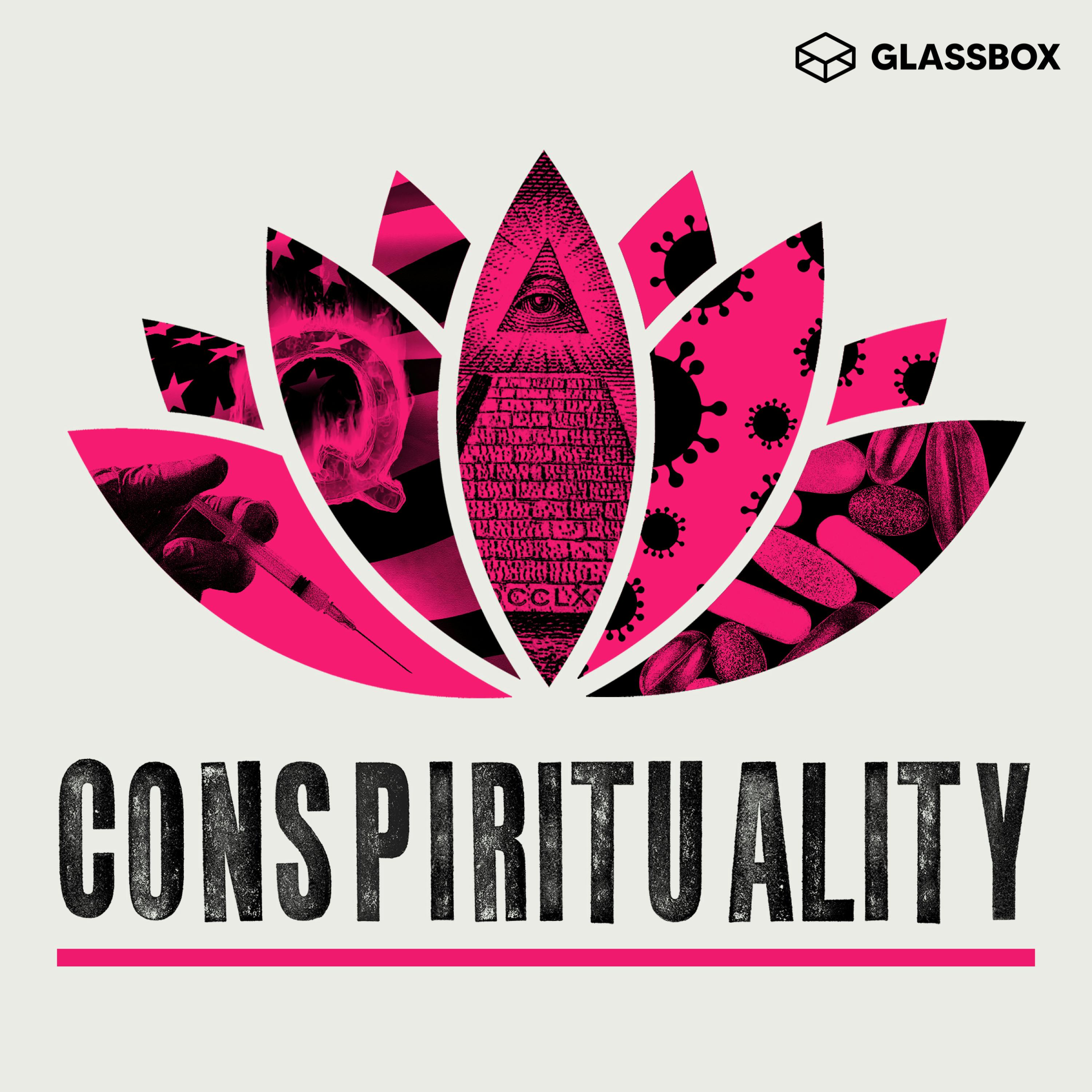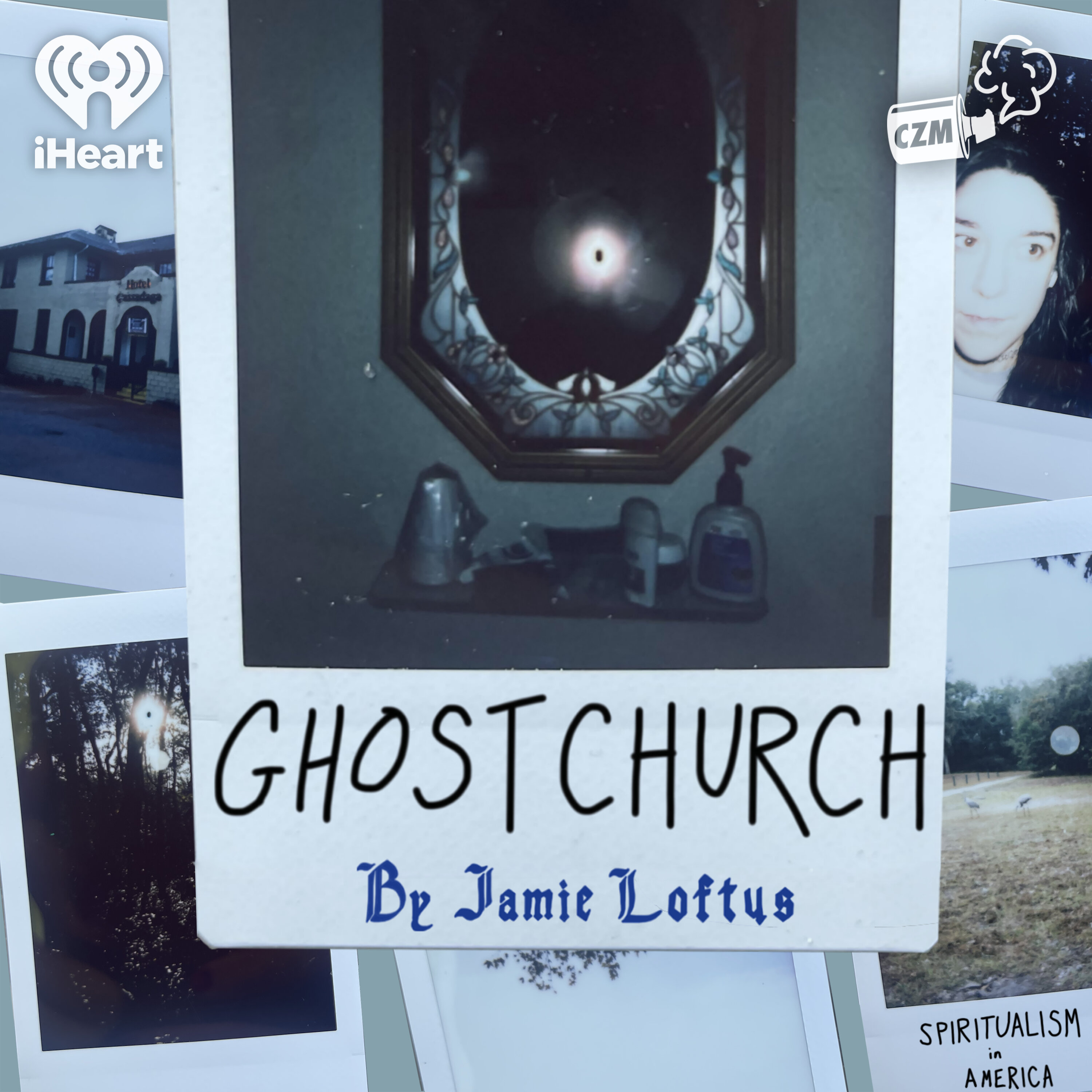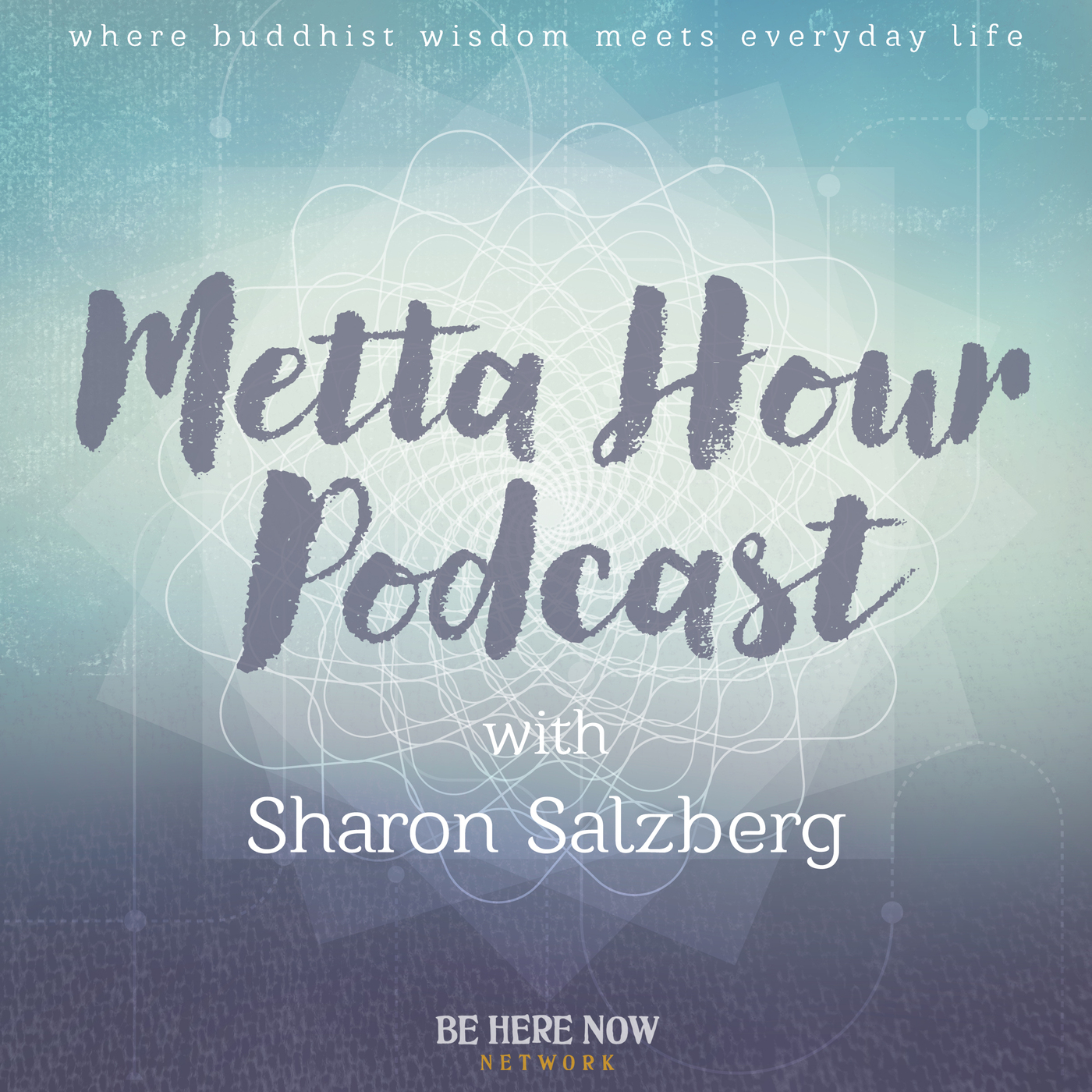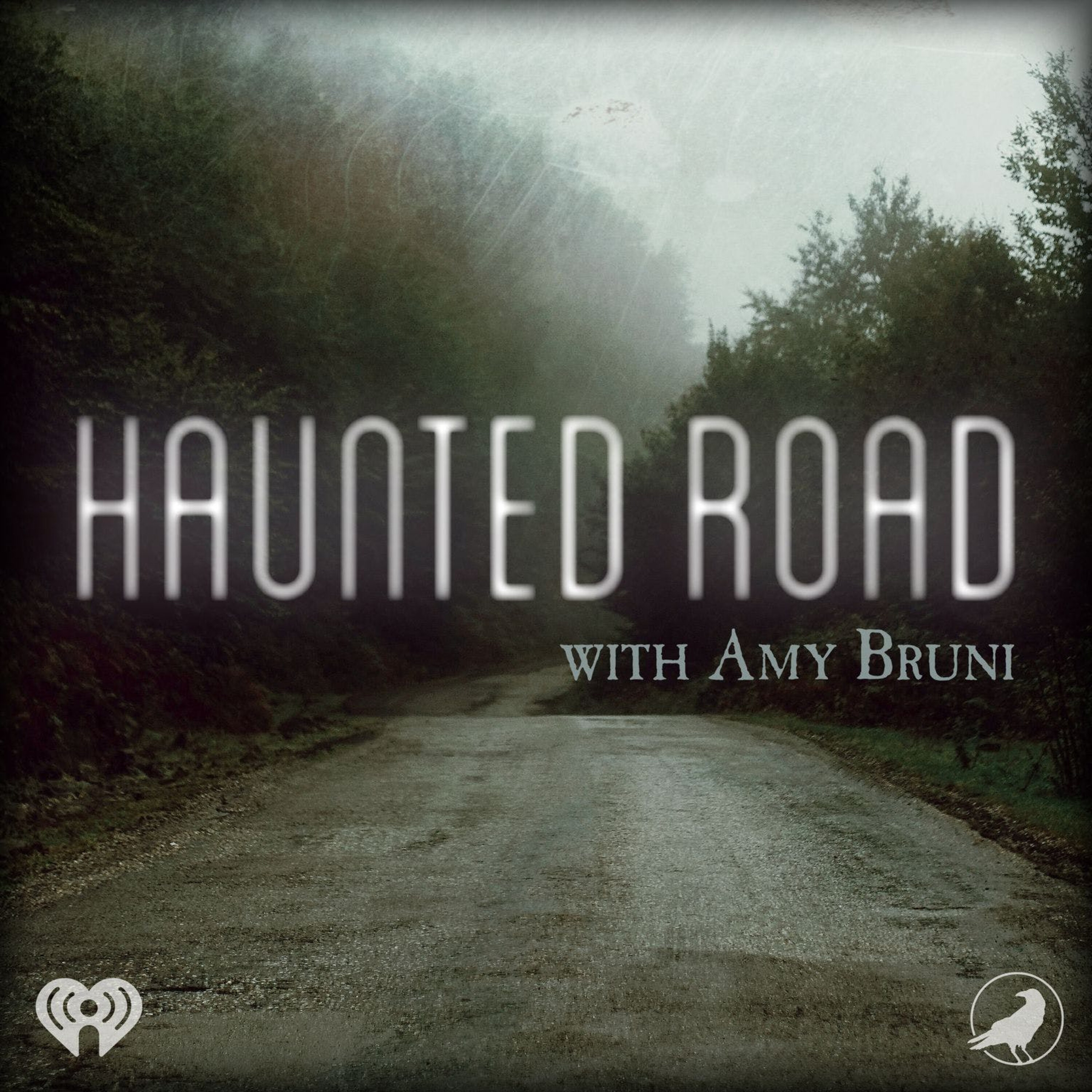
ReligiosiTea
ReligiosiTea is where sacred storytelling meets critical inquiry—an exploration of how religion, spirituality, and health collide, converge, and co-heal.
Hosted by Adren, a doctoral student in Health Equity Sciences with a Master of Public Health and a background in anthropology, this podcast bridges the gap between lived experience and academic insight. With deep roots in qualitative research and a passion for testimony, Adren invites listeners into the spaces where belief systems meet bodies, where healing is both clinical and cosmic, and where the divine shows up in diagnosis, doubt, and deliverance.
The name ReligiosiTea is a portmanteau of religiosity—a measure of religious participation—and tea, a term from queer and AAVE dialects meaning truth, gossip, and revelation. This isn’t just a show about religion or health—it’s about the stories we whisper, the rituals we survive, and the questions we dare to ask when the stakes are spiritual and embodied.
Episodes vary in format—from interviews with people of diverse faiths and spiritual identities, to solo reflections, to commentary on the politics of faith and wellness. Whether you’re devout, deconstructing, or somewhere in between, ReligiosiTea offers a grounded, generous space for complexity, clarity, and connection.
ReligiosiTea
Long Steep: Psycho - Sacred Delusions and Holy Madness
Spill your ReligiosiTea directly with the show host! Let us know your reactions, stories, and more!
Content Warning: This episode discusses symptoms and impacts of psychosis, including hallucinations, delusions, cult dynamics, moral panics, religious trauma, and references to mass suicides and violence. It also touches on stress, trauma, and contemporary political upheaval. Please listen with care, and step away if you need.
What if a single vision could ripple through millions of lives? In this Long Steep, Adren takes you to the uneasy edge where faith becomes certainty, certainty becomes prophecy, and prophecy collides with a hyperconnected world hungry for meaning. With warmth, rigor, and a pinch of irreverence, we steep in the phenomenon of religious psychosis—what it is, what it isn’t, and why the line between sincere devotion and sudden fracture matters.
This isn’t just diagnosis; it’s interrogation. Along the way, we move through Jerusalem Syndrome and India Syndrome, the mechanics of charisma and cult formation, godspousing, moral panics, and even the dancing plague of 1518. RaptureTok becomes our case study: one pastor’s dream-whispered date, failed prophecy, and the viral movement that sold possessions and courted ascension. Through it all, we ask: are we watching psychosis, or witnessing a social epidemic dressed in prophecy?
Highlights in this steep:
- Defining psychosis versus sincere spiritual experience
- Hallmark symptoms, novelty, and impairment thresholds
- Differential diagnosis and ruling out substances
- Stress, trauma, and place as triggers for visions
- Charisma, cult logic, and godspousing distinctions
- Skepticism, isolation, and family fractures
- Social epidemics, moral panics, and contagion (the dance plague)
- RaptureTok analysis: prophecy, spread, and aftermath
- Politics of salvation and Christian nationalism
- Crisis response, red flags, and grounding practices
At the heart of it: faith can heal and anchor, but it can also fracture under pressure. Learning the signs—and cultivating compassion—helps us safeguard both belief and well-being.
So pour your tea, enter the CaTeadral, and steep with us. If this conversation challenges or helps you, subscribe, share with a friend, and leave a review. Your stories shape future episodes—drop a comment or find Adren on socials @ReligiosiTea.
Between vision and delusion lies the thinnest veil—sometimes holy, sometimes broken, always human.
Follow me on Instagram and Threads: @ReligiosiTea
You can use the link at the top of the show notes or email me at religiositea@gmail.com to share your stories, thoughts, insights, reactions, and much more! I'm waiting for you to spill your ReligiosiTea!
We're spilling tea on religion and health. Where intersections of faith and healing combine on religiosity. As this podcast discusses religious beliefs, religious experiences, personal testimonies, and mental and physical health, some of the content may be uncomfortable or triggering for some listeners. Content warnings will be provided in the description of each episode. Any personal journeys discussed on this podcast do not constitute health, medical, or religious advice. We are simply trying to capture the lived experiences of real people who would like to share their own stories about religion andor health. Hello. This is your host, Adrian. Have you ever had a vision? Have you ever thought God was talking to you directly with a message for the earth? Or ever predicted the rapture? With healthy doses of religion, the average American is expected to see improvements in their mental and social health. Try religion today to see an improvement in peace of mind, to save yourself from the impending rapture, to sanctify your soul, and save yourself a place in heaven when the doom comes for us all. Potential side effects may include feeling like God's chosen one, delivering messages directly from the divine, breaking with reality, and cultic mass murder suicides. In all seriousness, we need to talk about religious psychosis. On today's episode, we will be doing a long steep on religious psychosis, what its major symptoms are, what conditions lead to religious psychosis, a few examples of religious psychosis, the difference between religious psychosis and social epidemiology, and some thoughts on the Rapture, which was just predicted to happen in late September, and again in early October when it didn't happen the first time. If you're still here, welcome to Earth. Maybe now we can get things done that aren't meant to hasten in some Armageddon. So, what is religious psychosis? First, we have to look at psychosis, which is defined by the National Institute of Mental Health as a collection of symptoms that affect the mind, where there has been some loss of contact with reality. They go on to say, during an episode of psychosis, a person's thoughts and perceptions are disrupted, and they may have difficulty recognizing what is real and what is not. Religious psychosis, sometimes referred to as spiritual psychosis, has been defined by the A Mission for Michael organization as experiences of psychosis with religious or spiritual themes. Specifically. Essentially, there is no diagnostic tool to assess for religious psychosis, but a person might be diagnosed with a psychotic episode or a break with reality, with acknowledgement that the delusions or psychotic symptomatic expressions have religious themes, beliefs, or undertones. It is also important to disclaim right up top that religious psychosis does not equate to people who are naturally fervent or devout in their faiths. The separation is usually seen in the sudden onset of particular symptoms of psychosis that are also linked to religious themes. I will try to clarify that throughout the episode, but want to make it crystal clear before we dive in. So, what are the symptoms of religious psychosis? One of the most striking and noticeable signs of religious psychosis is the experience of hallucinations and delusions related to a religious or spiritual belief or experience. Think, I am the next prophet, or I had a vision of the end times and it's happening on Thursday narratives. You may have noticed that this is tricky territory to navigate in discerning religious psychosis because entire religions have been founded by those who believe they are a prophet. A delusion, sometimes. And those who support that delusion and who have hallucinations of experiences that they share as revelatory of some higher truth. I immediately bring this up to recognize the idea that for some people these experiences are truly holy and not a mental illness, and that's real. At least for those who believe it is. Also, not all hallucinations would be classified as religious psychosis. In religious societies or communities, it is common to have that little voice in our head, our self-narrator, or our intuition, or the feeling in our gut to seem like it comes from something divine. Those would not classify you as having religious psychosis unless they also met other criteria. So let's keep steeping this tea and divine some sense of what religious psychosis is that does not compare to sincere spiritual experience. Delusions of grandeur or senses of impending doom on a universal scale are more indicative of religious psychosis than you hearing your gods or saints or ancestors' voice telling you that's enough. One positions you as someone supremely and uniquely special, while the other may be a culturally conditioned internal monologue response, or, for the believers, a small but genuine divine intervention. Recurrent and deeply vivid hallucinations that combine audiovisual elements, seeing and hearing things that are not there, may be a symptom of psychosis or psychosis-related diagnoses like schizophrenia. So if you do ever feel intrusive and recurrent hallucinations are impeding your life or the life of a loved one, it is important to seek psychological or psychiatric care. Other core components of religious psychosis include other psychosis diagnostic symptomologies like disorganized speech or the inability to maintain a coherent conversation with a lot of specific religious-themed interjections or constantly shifting the topic back to these delusions from other topics of discussion. Someone experiencing religious psychosis may also engage in increasingly different social engagement. They may self-select into social groups that support their delusions or start to self-isolate themselves entirely. This may be the difference between cult-like indoctrination and individual episodes of spiritual psychosis. Other behavioral indicators include an increase in religious activity. For someone Christian, Jewish, or Muslim, this might look like more praying or endless praying, extreme fasting, aside from traditional religious rituals of periodic fasting. For someone Buddhist or Hindu, this might be more meditation. Again, though, the cultural context matters. For someone Buddhist or Hindu, increased meditation might be seen as a right action toward enlightenment. For anyone, increased visitations to specific spiritual centers or places of worship can also indicate an episode of spiritual psychosis. The important caveat for all of these behavioral changes is that it must be abnormally elevated and a new behavior to really distinguish it from a normal increase in religiosity or religious affiliation. Someone who grew up in a strict traditional religion with daily practices wouldn't really be psychotic for continuing those traditions. But someone who says they are the new prophet and suddenly starts praying every day when they were generally a religious boar is a definite and concerning indicator of religious psychosis. It is also important to note that to be experiencing an episode of religious psychosis, or any psychosis really, other factors must be ruled out. This includes the use of psychoactive or hallucinogenic drugs that may lead to psychosis type symptoms like hallucinations, delusions, or the other behavioral components. Similarly, other psychiatric conditions that have symptomologies similar to psychosis must also be ruled out. This includes schizoaffective, depressive, or bipolar disorders that can contribute to psychotic symptomatic expressions. Psychosis can also be acute or short-term or chronic if diagnosed with a longitudinal psychotic disorder. A reminder: religious psychosis is psychosis with a seasoning of spirituality. So you might have a one-time prophet speaking about their personal divinity for a short period of time, or you could have the spiritual reincarnation of some deity hanging around your dinner table at every holiday. Now that we have an idea of what religious psychosis looks like, how it manifests, and what rules out episodes of a psychotic episode, what factors actually contribute to psychosis in general and in religious or spiritual psychosis specifically? Generally speaking, psychosis is relatively rare, with estimates of 15 and 100 people out of every 100,000 developing psychosis every year, according to the National Institute on Mental Health. It usually begins in young adulthood but can be experienced by anyone. Some research suggests a link between psychotic conditions and genetic factors, meaning if someone in your family has a psychotic disorder, it is possibly more likely that others in your family will develop similar conditions, but this is not a definitional risk for psychosis, and the links are still unclear. A clearer link between psychotic events, especially acute psychosis, is psychological and is related to stress and or traumatic events. For spiritual psychosis, intense religious beliefs can be a risk factor for a psychotic episode, especially if stress, trauma, or even really profound spiritual experiences alter or distort your perceptions of reality in a sudden and meaningful way. Emotional dysregulation can also be a trigger for a psychotic episode, and this is not limited to negative experiences. Negative and positive emotional dysregulation might mean the difference between someone believing they're possessed or pursued by demons or other nefarious beings, and believing they are the prophet and savior for all of mankind, or similarly euphoric psychoses that manifest in the spiritual sense. That being said, let's look at a few other conditions that can facilitate someone's spiral into a psychotic break. As we just learned, stress and trauma can cause an episode of psychosis, religious or otherwise. So we should then look at the conditions that might contribute to someone's stress, including current events, the current state of the world, and the overall how the time we're living in can exacerbate certain stressors or traumas that promote the conditions for a psychotic episode. We are currently living in a time with a lot of social and political upheaval across the globe. Wars and pseudo-wars are breaking out all over the world from the Gaza Strip to American cities, rife in Christian nationalism and racist ideologies. We are also living in a time with a great fear about the future, with the risk of nuclear detonation, growing anxieties about climate change, and a real challenge to our understanding of the world, both social and natural, and what our places in it might be. When people can't afford to eat, are subject to violence and starvation tactics, when people are scared to walk in their streets or scared to love who they love. When people are challenged at their core to reassess their entire worldview and what it means to be human, we experience stress and trauma. Stress is generally thought to include distal stressors, which are the stressors that are caused externally by the state of the world and the social systems in which we live. Think about societies that promote racism, sexism, discrimination, stigma, oppression, etc. And proximal stressors, which are the specific internalized fears and anxieties we manifest internally in relation to the distal stressors. Pair this with the real life traumas of being criminalized, institutionalized, attacked, harassed, or otherwise harmed by these systems that make the idea of the systems causing us these anxieties that much more real, and we have a traumatized individual. These pathways of stress and trauma can lead to a psychotic break through maladaptive coping strategies. What I mean is sometimes our brains will give us a new reality when the reality we are faced with becomes unbearable. Generally speaking, anyone could experience a psychotic episode, especially during turbulent times where not just the marginalized are anxious. We see in the body politic a specific urgency to promote ideological wars and carve out new meanings of our lives. This is the real T here. Marginalization narratives have become mainstream to the point that those who are non-marginalized use them to re-establish their own worldviews. And through terror management theory, which posits that we make sense of our very existences through established worldviews, these changing narratives are enough to stress out even the majority. A little teaser here, but later in this episode we will discuss how the majority has fallen victim to at least one man's psychotic episode through a social epidemic. Now that we've thought about time, let's think about place. Did you know there are certain religious psychosis conditions that occur in especially spiritually charged locations on Earth? I suppose the sheer power of those places makes them rife for experiences like this. But is it really the power of the place or the power we give the place? Think about Jerusalem. What do you know or believe about Jerusalem? It is one of the most religiously significant and contested cities on earth as the major world religions battle it out on who gets it to stake a claim to the ancient city. But aside from the geopolitics, a lot of people seek religious experience, validation, exoneration, and awe by taking personal pilgrimages to the holy city. Sometimes people get so caught up in their beliefs, the collective beliefs, and the sheer history and sense of magic around the city that they have brief psychotic episodes. This is often referred to as Jerusalem syndrome because people show up as mundane and leave as messiahs. Very literally, a number of people have been recorded as having delusions or religious hallucinations that lead them to believe they are the next prophet, the next incarnation of Jesus himself, or otherwise another crucial player in the next stage of the Christian movement. This phenomenon has been observed among Jewish and Muslim visitors too, who have feelings of being awakened to their true calling amongst the religious ruins and sanctified stones of their religious homeland. It is caused by the sheer overwhelm of being physically present in a place that holds so much power of the religious psyche. It is important to note, though, that these psychotic episodes are generally acute, and Jerusalem syndrome itself is not recognized as its own psychiatric diagnosis. A similar experience occurs more often among Western tourists in India in their very own episodes of India Syndrome. In this case, the chai is hot. I have to take a pause here to recognize the Western appropriation of Indic religions like Hinduism, Jainism, and Buddhism. And I have to acknowledge that as a convert to Buddhism, I may also be playing a part in that appropriation despite my best efforts to practice authentically and not reappropriate or repatriate any parts of the religion. Nor do I engage in reinterpretation of what the Buddha said. However, I still hold space for the recognition that I might be part of the problem of the westernization and orientalism that fuels the Buddhist movement in Western nations. Now that we have that aside out of the way, it is Orientalism or the romanticization of Asian cultures by Westerners that often leads to India syndrome. Many tourists travel to India with expectations of pristine culture, untouched spirituality, and access to pure and untarnished versions of the practices they do at home in the West. When confronted with the reality of modernity in India, there is often a deep disillusionment or depression that can occur, to the point that a person's heretofore sincerely held beliefs are now in question. It creates a spiritual crisis where one may break with their faith, or when the stresses of these experiences cause spiritual psychosis through delusions and hallucinations of spiritual calling, revelation, and feelings of sudden enlightenment. Spoiler alert, these feelings often don't last. This is also not a recognized psychiatric diagnosis in and of itself, but the depression, psychoses, and other psychological fallout from the syndrome are very real for the people who experience them. Now that we've spilled the tea on the world, let's drink some of it and bring it back into ourselves. Have you ever met someone extremely charismatic and thought you might follow him anywhere? Have you ever heard someone's religious or spiritual message and thought, I can relate to that? This is how cults are formed. Oftentimes, a cult leader exhibits traits of narcissism and religious psychosis, a la, I am the one true word, and anyone who doesn't follow me is foolish. They use their narcissistic charm and their psychotic delusions of grandeur to lure in people who themselves may be subject to religious psychosis, or at the very least, are looking for something to believe in. It is this very emotional and relational context between a religious psychosis and cult leader that fuels discrete episodes of religious psychosis in cult members. The desire to belong, the desire to connect, and the desire to be valued and seen work against the person who is joining the cult and conditions them into participation. The condition often utilizes stress, trauma, and anxiety to pull people into the folds through shame rituals, isolation, and punishment models until behavior and belief are acceptable for group membership. These set up all of the conditions for religious psychosis development and why it is so challenging to disengage people from cults they might be a part of. Again, I also recognize that entire religions that are now mainstream may have been founded using the same belief in a prophet and social conditioning tactics. I am not saying that those beliefs and experiences are not real, and I give full respect to those institutions. But the psychology and social motivation remain similar in many respects. Participation in these groups often leads to a renouncement of someone's previous life and detachment from any relationships that make them question their beliefs within the cult. While this isn't isolation in itself, it is self-selection into certain groups with a shared belief and rejection and distrust towards those who do not share in the belief or attempt to snap someone out of it, so to speak. The desire for belonging in this group and having those strong relationships and maintaining those relationships through shared delusions supersede other social motivations, including maintaining contact with your own family. Sometimes, though, the same desires for a relationship with something bigger than ourselves doesn't lead us to cults. It leads us to another specific brand of religious psychosis where someone engages in a particular relationship, often spun as romantic, with a deity, spirit, or whatever they believe in directly. I'm talking about God spousing here, y'all. God spousing is pretty much exactly how it sounds. It is the commitment at a marital level to a being of higher power between a human being and that entity, whatever form it may take. This is a concept that I encountered during my pagan era, and there is a fine line between Godspousing as a religious practice and God spousing as a psychotic episode. So, no, I'm not saying that all of the wives of Apollo are experiencing religious psychosis. The distinction lies in the actual belief of what is occurring. This may surprise you, but nuns in the Christian denominations are essentially God spouses. So it is not uncommon or unheard of to commit yourself to our higher power in this way. However, most people who make this commitment from a purely religious or spiritual standpoint understand the nature of the relationship is exactly that: a personal, spiritual, or religious commitment to faith and to developing an independent and personal relationship to faith in that way. So, how does it become religious psychosis? You may have guessed it already. It occurs when the god spouse in question has hallucinations about corporeal experiences of their spiritual partner that bend their perceptions of reality outside of ritual contexts. It occurs when the godspouse has delusions about their own special and ultimate place as said entity's favorite spouse or partner. It occurs when the lines between the ritualistic spiritual nature of the relationship begin to blur with the physical reality we find ourselves in, and cause abrupt and difficult changes in behavior where the godspouse is concerned, such as no longer eating, excessive rituals, self-isolation where they only speak to their spiritual partner, and paranoia or distrust when someone tries to question their experience. Even if those questions are out of genuine concern. Let's let that steep and move on to what happens to people socially when they experience religious psychosis. When your perception of reality strongly differs from those around you, there are some individuals and social impacts that are probably going to happen. Truly think about it. When someone tells you a ghost story or about their own extraordinary experiences of faith, do you immediately become skeptical? There is a natural skeptic in all of us, especially if we don't have any comparable experiences of our own. That's why I started this podcast. I even have a few experiences of my own that might qualify as acute religious psychosis or maybe something more. But I am also a rational scientist, and I immediately have a barrage of questions to verify or validate these experiences. I think we all have the skeptical lens, and I think that's a good thing to have. We should approach the world critically because it helps us make sense of what is going on around us, and, for the sake of this discussion, can help us discern if we or someone we know is experiencing something innocuous at best, if a little weird, or if they are experiencing a psychiatric emergency that may put themselves or others in harm's way. Back to my point about differing perceptions of reality. Imagine for a moment that you had a sincerely held and sincerely real experience in your mind that others found weird or different enough that you feel weird for even having those thoughts or experiences. I'm sure we can all think of something along these lines, even if it isn't a religious delusion. Maybe your guilty pleasures or your own contrary political or social views. How would it feel to not be believed? Or to not have these experiences taken seriously. For people who really truly believe what they are going through is real, our skepticism or outright dismissal of those beliefs and experiences is jarring. While we are also jarred by the sudden onset of these symptoms in those we love and care about, they are also shocked when we don't see the world the same way they do. It is this tension between the one experienced psychosis and those of us still here in the real world that drives certain behavioral shifts like isolation, paranoia, and sometimes violence and aggression to those around them. While it's true we often can't make sense of why these delusions are so real for the one experiencing them, they also can't make sense of why we don't see the world in the same way they do. This can also drive behavior that leads to cults, cult-like virtual echo chambers, and other social groups through self-selection into spaces where their feelings, experiences, and beliefs are validated without question. This is the slippery slope that leads to social epidemics, not necessarily mass psychosis. Let's talk about what social epidemics are, look at a recent example, and then we'll disentangle if mass religious psychosis is real. Social epidemics are the rapid spread of behaviors, ideas, or trends within a population. We live in a time where we can readily see examples of social epidemics with our hyperconnectivity through the internet and social media. Think about TikTok trends. The sudden uptick in specific activities like pickleball, petition to bring back tennis courts to local parks, dance trends, musical trends, crash diets, workout routines, and ideological shifts like the anti-vax movement, political engagement, and so much more. However, social epidemics are not new. Let's look at one of the most interesting, or at least entertaining, examples of a historical social epidemic. In medieval Europe, there was a plague of dancing. Yes, dancing. In 1518, Frau Trofea began dancing in the streets and was soon joined by hundreds of other people who all began dancing involuntarily. This was a mass hysteria of the grooving kind. The official response was that it must have been caused by hot blood, and attempts to cure people of this plague of popping and locking was to hire bands and musicians and simply let them dance away their sickness. This caused the dance plague to grow. Literally, people died. The overexertion from the uncontrolled. Controllable dancing led to heart failure for some of the people who were afflicted. Eventually, they sent the afflicted away to a church, and the plague ended on its own about four months later. This is such an interesting example of social contagion, or how behaviors manifest in people spontaneously through contact with other people who are quote-unquote afflicted, much like germ theory. Now we have theories from sociology for how behaviors spread through social networks, and that might be a more appropriate look at how social behaviors and attitudes move through a society. But the spontaneity of mass behaviors is still a real phenomenon. Let's think about how moral panics spread through society. Much like the dance craze of medieval times, or maybe somehow the opposite, but still following the same social mechanism, moral panic spreads through a society like wildfire. I grew up in the late 90s and early 2000s when the news would run coverage over things like heavy metal music, rave culture, substance use, the satanic nature of being emo, and up until recently, the homosexual agenda. The idea that these countercultural movements or expressions are evil and harmful to youth and must be contained to preserve the integrity of our nation have prompted some people to seek out religious cures and guidance on how to mitigate their effects. We are still seeing impacts from the anti-LGBTQ movement today through conversion therapy efforts with a recent case going to court about the right of mental health practitioners to perform conversion therapy. So, what does this have to do with this episode? Well, we are talking about the spread of behaviors and beliefs. Moral panics don't occur for no reason. There is an identified threat, and suddenly parents everywhere are micromanaging their children's behavior to save them from the social plague that has come upon our society and threatens our existence. In this sense, there seems to be a dual social epidemic of the counterculture rising and the societal response to that rise, where ideologies, beliefs, and behaviors suddenly conglomerate on either side and direct the beliefs and behaviors of everyone who has a stake in it all. Moral panics also fuels specific instances of religious psychosis. For some individuals who are experiencing a moral panic, there are coping strategies to engage and indulge more fervently in religious practices to try and calm the threat down. Remember, this isn't necessarily religious psychosis in and of itself, but what happens when someone forced with the new realities of life and a morally panicked society suddenly has direct contact with Jesus and is told the rapture is coming. And what about the people who believe him? Let's welcome RaptureTok into the room. This hashtag showed up all over my TikTok for you page after a South African Christian pastor named Joshua Mhlikela said that the rapture was going to occur somewhere between September 23rd or 24th, 2025, after Jesus came to him and revealed this date. According to an article from Lad Bible, Joshua became convinced he would be a vessel for the word of Jesus himself after being whispered to in a dream. Check 1 and 2 for religious psychosis. Hallucinations and delusions of grandeur. And his prediction was proven to be a delusion. The rapture came and went, and no one was ascended to heaven inexplicably, and the world did not fall into chaos. At least, not a chaos that wasn't already here. At the time of the writing of this podcast episode, the new rapture date is set for tomorrow, October 6th or 7th, depending on where you are in the world. According to our good friend Joshua, Jesus did not know we had switched calendars, and so all predictions were off by 13 or so days. This episode will air after the new rapture, so if you're still here, still listening, still sipping that religiosity, welcome back, sinners. But in all seriousness, this prediction had real-life social consequences for those who believed in the message. Many people started packing up their homes, selling off their belongings, and quitting their jobs. Or at least so they said on social media. I am a little distrustful of anything online, so the numbers of actual behaviors and believers are unclear. Does this constitute religious psychosis? It depends, really. For many of the people who sincerely believed in this rapture prediction, they do not meet the criteria for a psychotic episode. I imagine many did not have hallucinations that Jesus was talking to them and preparing them directly as rapture winners, nor did they start isolating themselves. They simply started selling off all of their possessions and preparing to be saved. This seemingly odd behavior, or at least odd to those of us who did not believe, fits more along the lines of a social epidemic. It spread through the masses through social media and a belief in their faith and in this prophet. But without an explicit break with reality, only those who had delusions of their own propriety in the rapture, paired with a real psychological break with reality in a hallucinogenic sense can be said to have had religious psychosis. That being said, I mean no respect to Pastor Joseph, but what he has experienced can most assuredly meet the diagnostic criteria for religious psychosis, beginning with his call to prophethood through his whispered dreams, all the way through the recent rapture predictions. I do believe it is also true that Pastor Joseph does have a very sincere religious belief. So I just want to put in a reminder here that being devoutly religious and defining your own relationship with faith is not necessarily spiritual psychosis. The delusions of grandeur and prophetic messaging going unchecked is truly what qualifies this as a case of religious psychosis, if sincerely believed. Or at the very least, disingenuous clickbaiting. Despite seeing this very public display of religious psychosis happening in real time, the most interesting part about the whole rapture talk fad is how one-man psychosis led to a very real social epidemic of immediate rapture prepping and the sharing of sincerely held convictions that the rapture was happening and that they would be saved by their lord and savior. This goes back a bit to the cult logic of how a charismatic leader with a message people want to believe can cause so many people to act out in ways they wouldn't have if those conditions were not met. Interestingly, it's worth repeating that this is how a lot of religions have formed and continue to form. Are religions social epidemics? Is that necessarily a bad thing? It most definitely could be a bad thing if that religion sought harm toward people or was brought about in a harmful manner, but I think most people who are religious might argue for its inherent goodness and general beneficence. That's just some tea to sip on while we discuss the politics behind rapture ideology. Remember the sections from earlier on how the time we are living in can contribute to religious psychosis, on how cults arise, and on how moral panics occur as a social epidemic. Those themes all tie into the politics of belief behind who gets raptured. People who believe in the rapture believe that only the good get saved, and the rest of us, I will willingly lump myself in with the bad, will be left behind to suffer for seven years before all goodness comes back to reclaim the earth. This indicates very explicitly that some people are not worth saving, and I have to critically wonder about who that is. I maintain that while those who were preparing for the rapture on Rapture Talk were not necessarily experiencing religious psychosis, there is an element of religious psychosis in the idea that they are good enough to be saved in comparison to someone else. Considering the rise in Christian nationalism in this country, I can only assume, and this is pure speculation on my part, that the rapture does not include anyone non-Christian, anyone non-straight, and in a lot of cases anyone non-white, despite the pastor Joshua being black. That last one follows the demographics of Christian nationalism. No matter where or how we or they really draw that line, the line is nonetheless drawn. That line is political, and to think otherwise is a disservice to all of the aforementioned stressors I mentioned earlier in this episode. But why does a group that seems to be the majority in this nation, white Christians, feel enough stressors to experience this social epidemic in the first place? Let's set the stage a little. Starting strong, Israeli politics have really fueled a lot of religious Armageddon-based narratives that have psychologically prepped people for the rapture or a similar life-altering event. People often discuss war in Israel as a catalyst for the end of days, though there has been conflict in Palestine Israel for as long as the cultural memory can remember, so the timing is always right for the world clock to suddenly stop ticking. A little more interesting is that recently Israel actually conducted a sacrificial ritual of a red heifer, or cow, though this is debated as being real. Israel has claimed it was a practice run for the real deal. Other more conspiratorial thinkers have said it was real. The ritual itself is thought to be a signal for the bringing about of Armageddon. Meanwhile, another religious enterprise has also completed a spiritual ritual. In December of 2024, before his passing, Pope Francis opened five portal doors in a religious ritual to replenish and renew the faith of Catholics and Christians the world over. Of course, the internet lost it with this one, and it became the door to Lucifer's very tomb and the relinquishing of earth to hellish forces in preparation for the rapture. These religious rituals from the Abrahamic faith, in tandem with the political and life anxieties people are experiencing, prime both religious psychosis and social epidemics like the rapture preppers that we just saw unfold in The Cultural Zeitgeist. I have mentioned this several times throughout this episode, but we are living in increasingly uncertain times. There is much political unrest and upheaval at national and global scales, and people are scared. People are struggling to make ends meet, people are struggling to make sense of the world we are living in now, which somehow feels more urgent, more anxious, and more precarious than it did even a decade ago. There are mass cultural movements and countercultural movements and disinformation spreading like wildfire, it makes trust difficult. If you don't know if you can trust your leadership and you don't know how you're going to make it through the next few months financially and physically, who do you turn to? It makes the market for mass appeals and escape routes much more open. This is why we had so much buy-in from the apparent majority, because we are all struggling right now. These struggles are paired with rhetoric that centers faith in Christianity as being under attack and needing to be defended. Listen to my episode Hellfire and Salt for more on the ideological war in the United States. And with rapturesque interpretations of religious rituals, and anyone who is devout enough could be willing to believe the rapture is coming. It gives a safe out, it gives preference to in-group membership, it aligns with worldviews and expectations, and ultimately the perception behind it is an end to individual suffering for the worthy. And we might all consider ourselves worthy. So this pipeline of religious psychosis to spiritual social epidemics is complete, and we can see how the context in which we live prime each and every one of us to potentially fall under the spell of a delusion or of a spiritually based social movement. It just has to meet the right conditions. Now let me briefly talk about whether mass religious psychosis can happen. I think it depends on your definition of mass and on the definition of psychosis. Psychosis is considered to be abnormal, so any psychosis and mass seems counter to the definition. It would fall under social epidemic or, in cases of religious beliefs, cultish or novo-religious construction dynamics. But let's think for a minute about cults. I won't go into too much detail. I want to do an episode on cults later on in this show. But from a religious psychosis perspective, a lot of the cult members themselves do experience religious psychosis to some degree and for some period of time, even if they aren't all at the same time or same degree as everyone in the cult. So in that sense, when it's more than a few people, I guess religious psychosis can occur in mass, but the shared delusion of it all is guided by individual behaviors, psychotic experiences, and beliefs. So it is not mass religious psychosis in the way that we would think about a mass hysteria, moral panic, or social epidemic. Psychosis remains intrinsically individual. Now that we have spilled the tea on religious psychosis from noticeable symptoms and different manifestations and contexts to the social impacts of religious psychosis that can help reify the psychotic expressions and isolation that can occur as a result, what do we do with that information? It is important to note that in order to adequately diagnose any psychotic episode and put a stop to it, a psychiatric professional is required. They may prescribe antipsychotic medications, sedatives, and other pharmacological, medicinal, or therapeutic approaches. It is super important to realize that unless we have been trained as a mental health professional, it is not up to us to cure our friends and loved ones from a psychosis event. If you work with at-risk communities in healthcare or healthcare adjacent settings, you can seek training and certification in mental health first aid, but even in this training, they advise protecting your own safety first and calling in professional medical help and experts in de-escalation as part of the process. My key takeaway from these trainings is to recognize that whatever is happening is very viscerally real for the person who's experiencing the psychotic break, and attempts at bringing someone back to reality without proper training or safety protocols can cause escalation up to and including violence. It is important to remove bystanders from the situation in a safe and calm manner while avoiding making the person experiencing psychosis feel attacked or ostracized. Check out mental healthfirstaid.org for more information on de-escalation, mental health crisis management, and appropriate steps for bystander intervention or bystander exit strategies. I cannot reiterate this enough. Please leave it to those who are trained to deal with these episodes whenever possible and always prioritize your own safety first. That being said, how can we engage in preventive strategies for ourselves to prevent becoming susceptible to religious psychosis? Remember all the context in which a religious psychosis events are primed to appear. Remember the causes that may lead to a psychotic event in the first place. Most of these conditions are related to stress, trauma, and other mental shocks that might occur. It is important for each of us to remain grounded in uncertain times, to find positive coping mechanisms to help manage and mitigate our responses to stress and trauma, to seek out mental health care whenever needed and whenever is possible, recognizing that there are a variety of barriers to care that we may each experience. It is super important to remain connected to our communities of care and to find our own places of belonging among supportive and caring community members that can also help keep us grounded in reality, especially as more rhetoric pops up about the dire state of the world and panics that ensue as a result. While it is true and very real that we are living in uncertain times and various communities are exposed to more stressors and traumas from things that range from the precarity of life in an unstable economy, to direct targeting and victimization by political regimes, to the death and political disappearances of loved ones across the global community, there is and must always be room for joy, for fun, for decompression, for mutual aid and support, and for me, most importantly of all, for love. By retaining connections to our own daily lives, to groundedness in the bitter and the sweet aspects of life that occur all at once, and to our communities, we can find numerous coping pathways that can help us realistically deal with the realities we face, without dismissing the harms that are occurring and without resorting to fatalistic doomsday predictions and other breaks from reality. And that is the religiosity. This episode took a lot of twists and turns around religious psychosis and social epidemics. Thank you for sipping this tea with me. I know it may seem dark and scary, but reminders of shared humanity and of our own resilience can help keep us safe and sane. I hope you found this content interesting, and I'm curious to hear about your own thoughts, experiences, and beliefs around religious psychosis, religion, spirituality, health, and mental health. You can engage with me through the comment link in the show notes or find me on socials at religiosity. As always, be happy, be healthy, be well, and bye.
Podcasts we love
Check out these other fine podcasts recommended by us, not an algorithm.

Conspirituality
Derek Beres, Matthew Remski, Julian Walker
Heart Starts Pounding: Horrors, Hauntings and Mysteries
Heart Starts Pounding
Queer Theology
Queer Theology / Brian G. Murphy & Shannon T.L. Kearns
Throughline
NPR
Code Switch
NPR
Ghost Church by Jamie Loftus
Cool Zone Media and iHeartPodcasts
Trade Offs
Fidelity International
The Way Out Is In
Plum Village
Metta Hour with Sharon Salzberg
Be Here Now Network
Haunted Road
iHeartPodcasts and Grim & Mild
